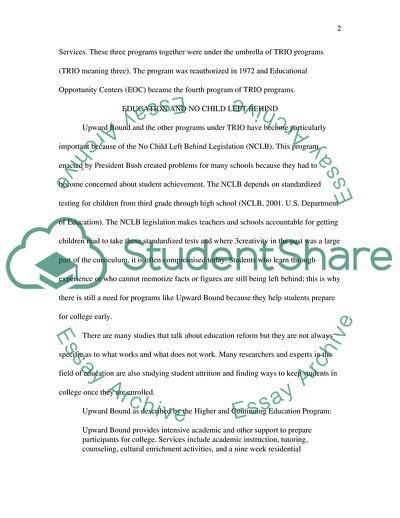Cite this document
(Upward Bound: TRIO Research Proposal Example | Topics and Well Written Essays - 2000 words, n.d.)
Upward Bound: TRIO Research Proposal Example | Topics and Well Written Essays - 2000 words. Retrieved from https://studentshare.org/education/1724953-how-the-upward-bound-program-assists-children
Upward Bound: TRIO Research Proposal Example | Topics and Well Written Essays - 2000 words. Retrieved from https://studentshare.org/education/1724953-how-the-upward-bound-program-assists-children
(Upward Bound: TRIO Research Proposal Example | Topics and Well Written Essays - 2000 Words)
Upward Bound: TRIO Research Proposal Example | Topics and Well Written Essays - 2000 Words. https://studentshare.org/education/1724953-how-the-upward-bound-program-assists-children.
Upward Bound: TRIO Research Proposal Example | Topics and Well Written Essays - 2000 Words. https://studentshare.org/education/1724953-how-the-upward-bound-program-assists-children.
“Upward Bound: TRIO Research Proposal Example | Topics and Well Written Essays - 2000 Words”. https://studentshare.org/education/1724953-how-the-upward-bound-program-assists-children.


